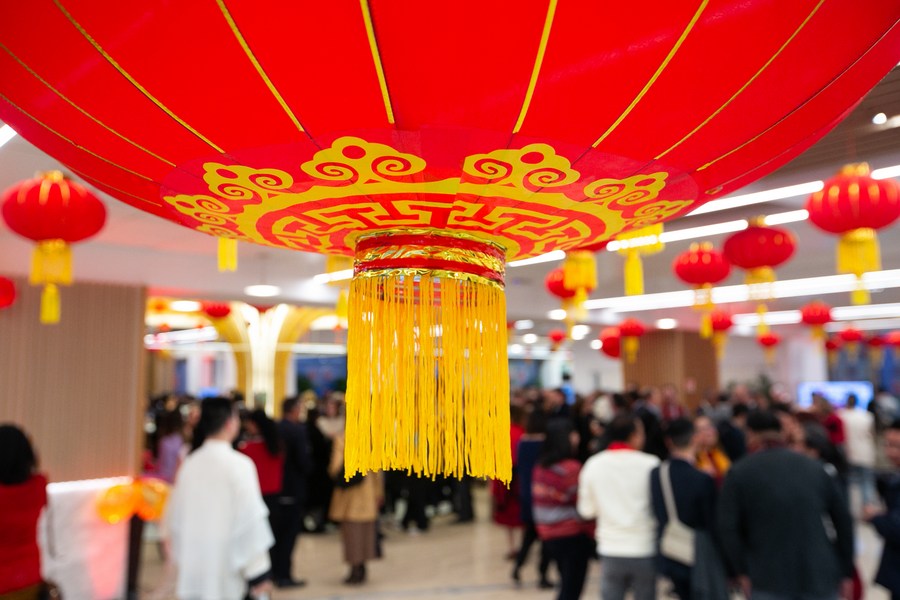
People attend an event to celebrate the Chinese Lunar New Year at the headquarters of the United Nations Food and Agriculture Organization (FAO) in Rome, Italy, on Feb. 2, 2024. (Xinhua/Li Jing)
Traditional Chinese cuisine, lion and dragon dances, concerts and exhibitions are staged in many European countries to welcome the Chinese Lunar New Year, the Year of the Dragon, bringing blessings to residents and visitors.
LONDON/BUDAPEST/SOFIA/MADRID, Feb. 4 (Xinhua) -- Chinese New Year, or the Spring Festival, is a week away. Still, people across Europe have felt the festive ambiance by savoring traditional Chinese cuisine and enjoying various celebratory activities.
This Chinese Lunar New Year, or the Year of the Dragon, falls on Feb. 10. From Jan. 29 to Feb. 12, 50 iconic red London buses featuring the "Nihao China" national tourism image, the Happy Chinese New Year logo, and the auspicious Chinese dragon image, pass through London landmarks such as Trafalgar Square, Piccadilly Circus, and St. Paul's Cathedral, bringing Spring Festival blessings to residents and visitors around the world.
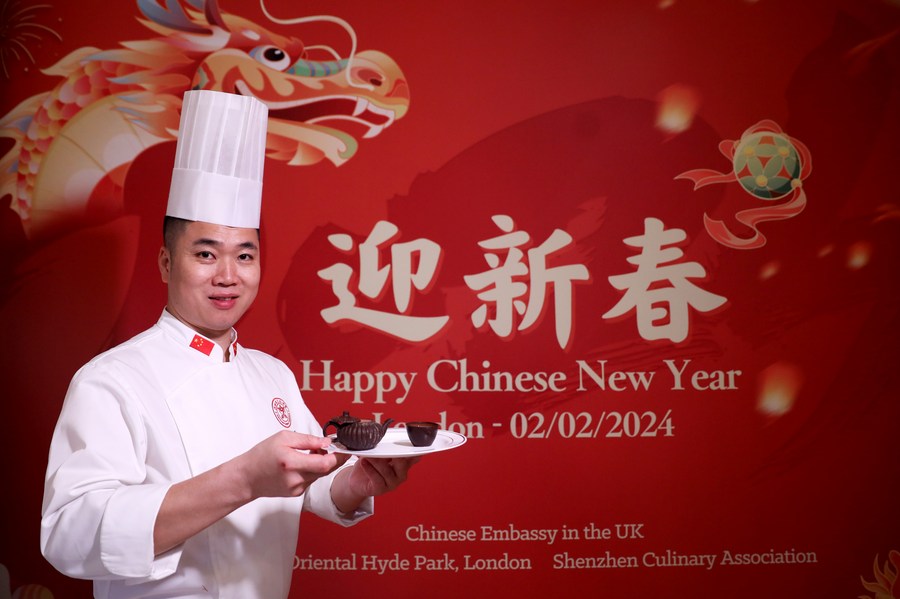
A chef shows teapot- and teacup-shaped chocolate desserts during a Chinese cuisine tasting event held at Mandarin Oriental Hyde Park Hotel in London, Britain, Feb. 2, 2024.(Xinhua/Li Ying)
On Saturday, the National Maritime Museum in London staged wonderful Lunar New Year celebrations, including lion dances, a tea-tasting ceremony, Lunar New Year storytelling and mahjong playing. A similar celebration was held at the British Science Museum Thursday night.
During a Chinese cuisine tasting event held at Mandarin Oriental Hyde Park Hotel in London on Friday, four master chefs from Shenzhen Culinary Association introduced the characteristics of Cantonese Cuisine, explained the cooking methods, and invited guests to prepare and taste the traditional Chinese Year's Eve dinner.
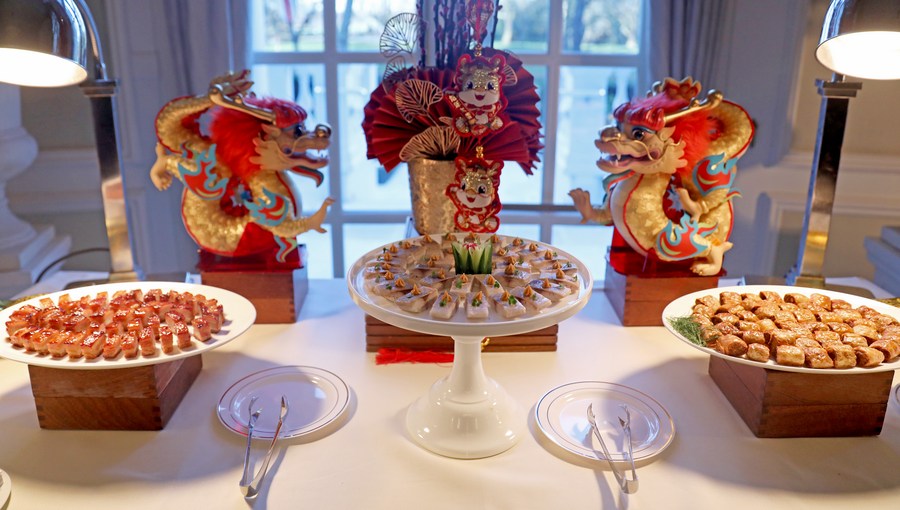
Chinese dishes are seen during a Chinese cuisine tasting event held at Mandarin Oriental Hyde Park Hotel in London, Britain, Feb. 2, 2024.(Xinhua/Li Ying)
In Budapest's Chinatown, a delegation from China's southwest province of Chengdu treated Hungarian audience to a diverse range of traditional Chinese arts, including the meticulous craft of painting the inside of glass bottles and the culinary artistry behind Szechuan-styled stuffed buns.
"We had lived in China for four years and my son was born in Beijing, so we have a deep connection to the tradition," said a man from Kecskemet, Central Hungary. "It is our first time to this quarter, and we're eager to keep the culture we experienced in China a part of our lives here."
In Sofia, Bulgaria's capital, a folklore event titled "Dancing Dragon Welcomes Spring" kicked off on Saturday at the China Cultural Center. The event featured artistic performances, traditional Chinese games and a tasting session of Chinese cuisine.
Wang Min, charge d'affaires of the Chinese Embassy in Bulgaria, said that the Chinese New Year, was the oldest and most important traditional holiday in Chinese culture and the dragon is a symbol of prosperity, strength, nobility and luck.
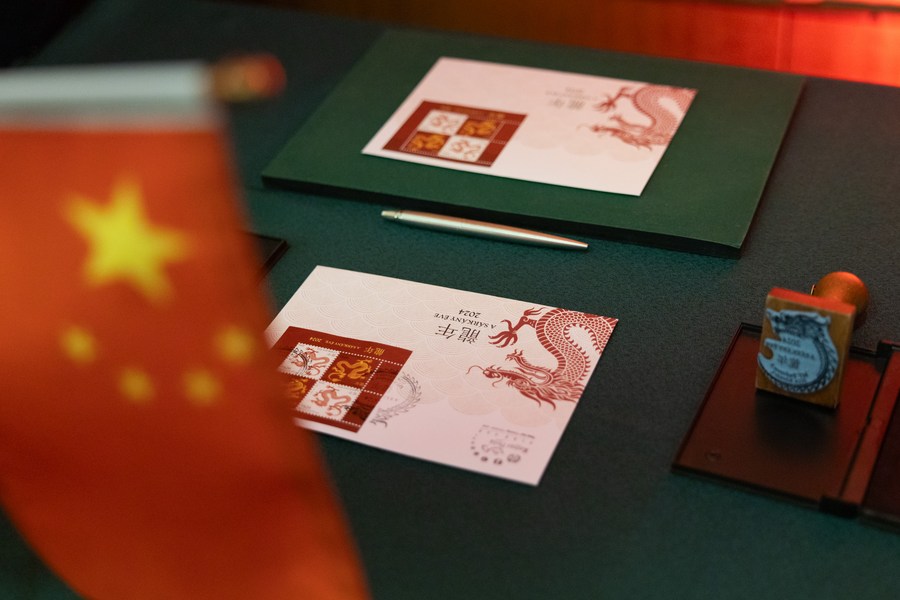
This photo taken on Feb. 1, 2024 shows first-day covers with the stamps marking the upcoming Chinese Lunar New Year, the Year of the Dragon, at the launch ceremony of the stamp in Budapest, Hungary. (Photo by Attila Volgyi/Xinhua)
A concert featuring Chinese songs and world classic opera excerpts was held in Madrid on Saturday as part of celebrations of the Chinese Lunar New Year.
At the National Music Auditorium, the Choir of the Shenzhen Dance and Opera Theater performed folk songs from China, such as "Jasmine Flower" and "Hymn of Eight Horses," as well as well-known opera excerpts "Les voici!" by George Bizet and "Libiamo ne'lieti calici" by Giuseppe Verdi.
"I love music, so I love listening to sounds from other cultures, which are very different from ours. They are very melodious sounds," Marta Gonzalez, an attendee, told Xinhua after the concert.
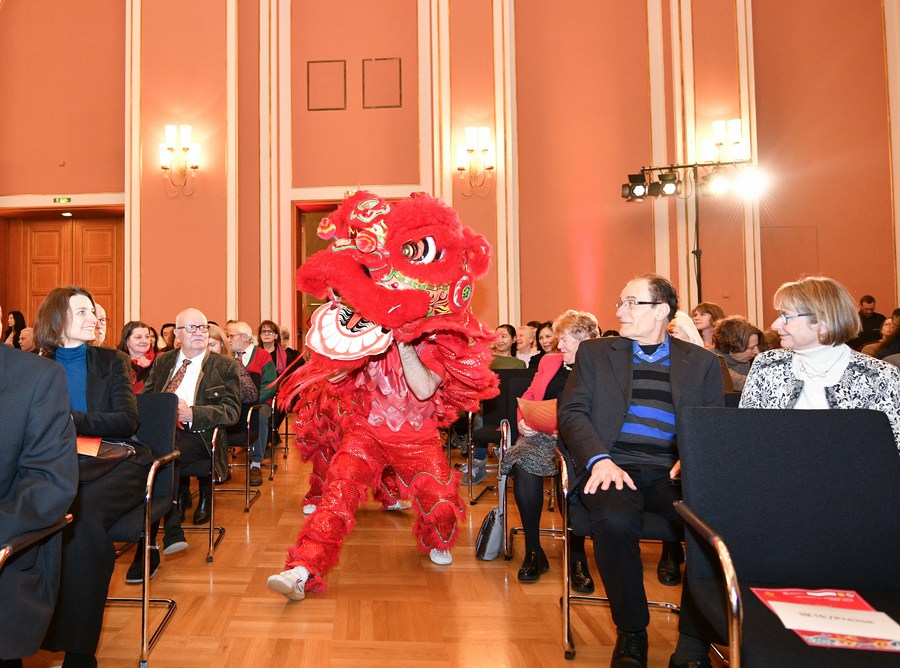
People watch lion dance performance during a "Happy Chinese New Year" concert in Berlin, Germany, Jan. 31, 2024. (Xinhua/Ren Pengfei)
Jose Lorenzo, another attendee from the Spanish city of Cordoba welcomed the initiative to strengthen cultural ties between China and Spain. He expressed his appreciation for the visa exemption policy by the Chinese government for Spain.
"I work in the tourism sector and the visa exemption is a magnificent measure to me, but I hope there is also reciprocity for Chinese tourists who want to come to Spain. I have known several Spaniards who have thought about China as a destination for their vacations in August. It is a real incentive," he said.




 A single purchase
A single purchase









